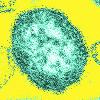

- » Whooping cough in California has infected 4,000 and killed 9; infections continue to rise
- » CDC: Overall toddler vaccination rates are good, but a decline in measles shots a concern
- » Foreign visitor to Wal-Mart meeting hospitalized; Ark Health Department investigating
- » Infants 'at risk for measles in first year'
- » Experts say autism bowel disease posited by flawed study that caused heath scare may not exist
- » 1 in 4 parents believes unproven vaccine-autism link, but most do what doctor says is best
- » British medical journal retracts flawed 1998 study that linked measles vaccine to autism
- » The Lancet medical journal retracts flawed autism study originally published in 1998
- » Report: Evidence lacking for special autism diets, but digestive problems important to treat
- » UN urges help for 1 billion deprived children and hundreds of millions affected by violence
Topics: Health Tags: Measles View |
Tags: Measles View |
Topics: Health Tags: Measles View |
|||||||||
Topics: Health Tags: Measles View |
Measles is an infection of the respiratory system caused by a virus, specifically a paramyxovirus of the genus Morbillivirus. Morbilliviruses, like other paramyxoviruses, are enveloped, single-stranded, negative-sense RNA viruses. Symptoms include fever, cough, runny nose (coryza), red eyes (conjunctivitis) and a generalized, maculopapular (maculopapular rash), erythematous rash.
Measles is spread through respiration (contact with fluids from an infected (infection) persons nose and mouth, either directly or through aerosol (Particulate) transmission), and is highly contagious—90% of people without immunity (immune system) sharing a house with an infected person will catch it. The infection has an average incubation period of 14 days (range 6-19 days) and infectivity lasts from 2-4 days prior, until 2-5 days following the onset of the rash (i.e. 4-9 days infectivity in total).
An alternative name for measles in English-speaking countries is rubeola, which is sometimes confused with rubella (German measles); the diseases are unrelated. In some other European languages, rubella and rubeola are synonyms, and rubeola is not an alternative name for measles.
Icd10: ICD10B05b00.-
Icd9: ICD9055
Diseasesdb: 7890
Medlineplus: 001569
Emedicinesubj: derm
Emedicinetopic: 259
Emedicine Mult: eMedicine2emerg389 eMedicine2ped1388
Meshid: D008457 Taxobox
Virus Group: v
Ordo: ''Mononegavirales''
Familia: ''Paramyxoviridae''
Genus: ''Morbillivirus''
Type Species: ''Measles virus''




